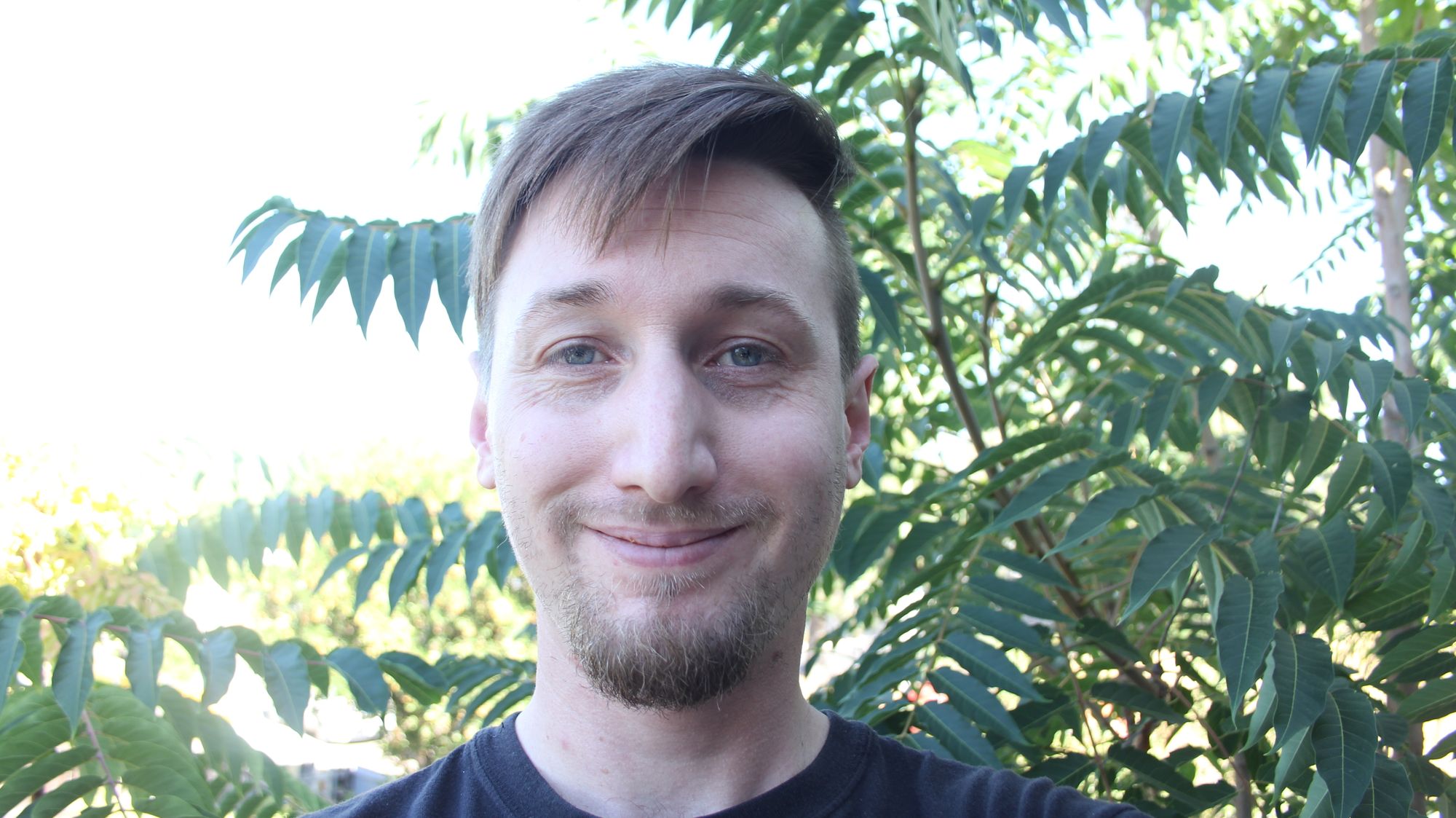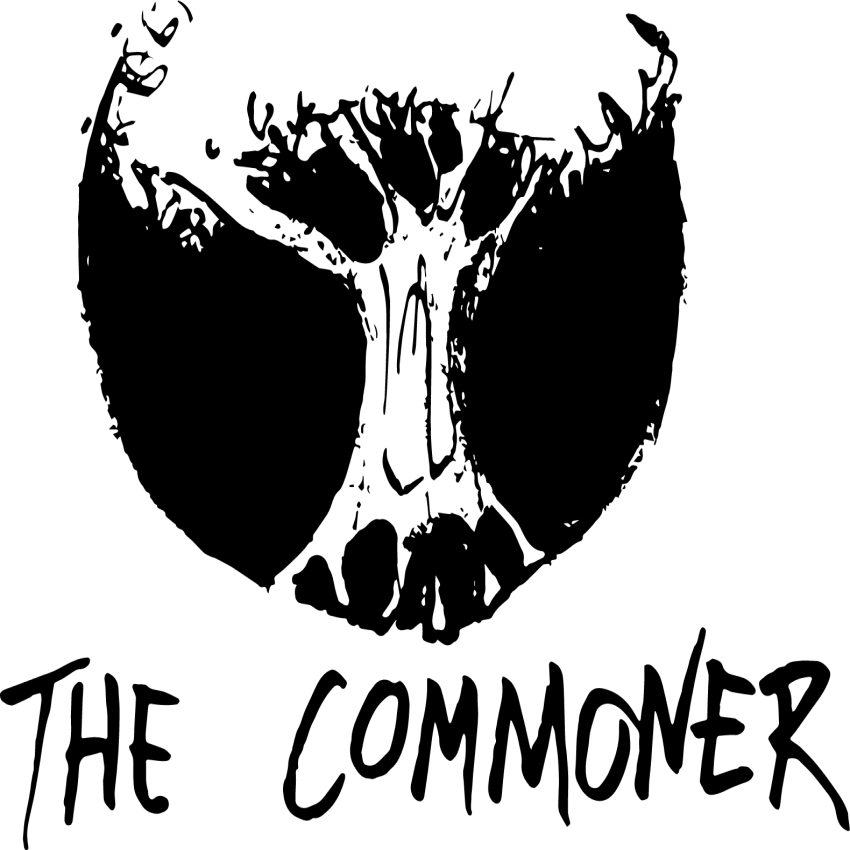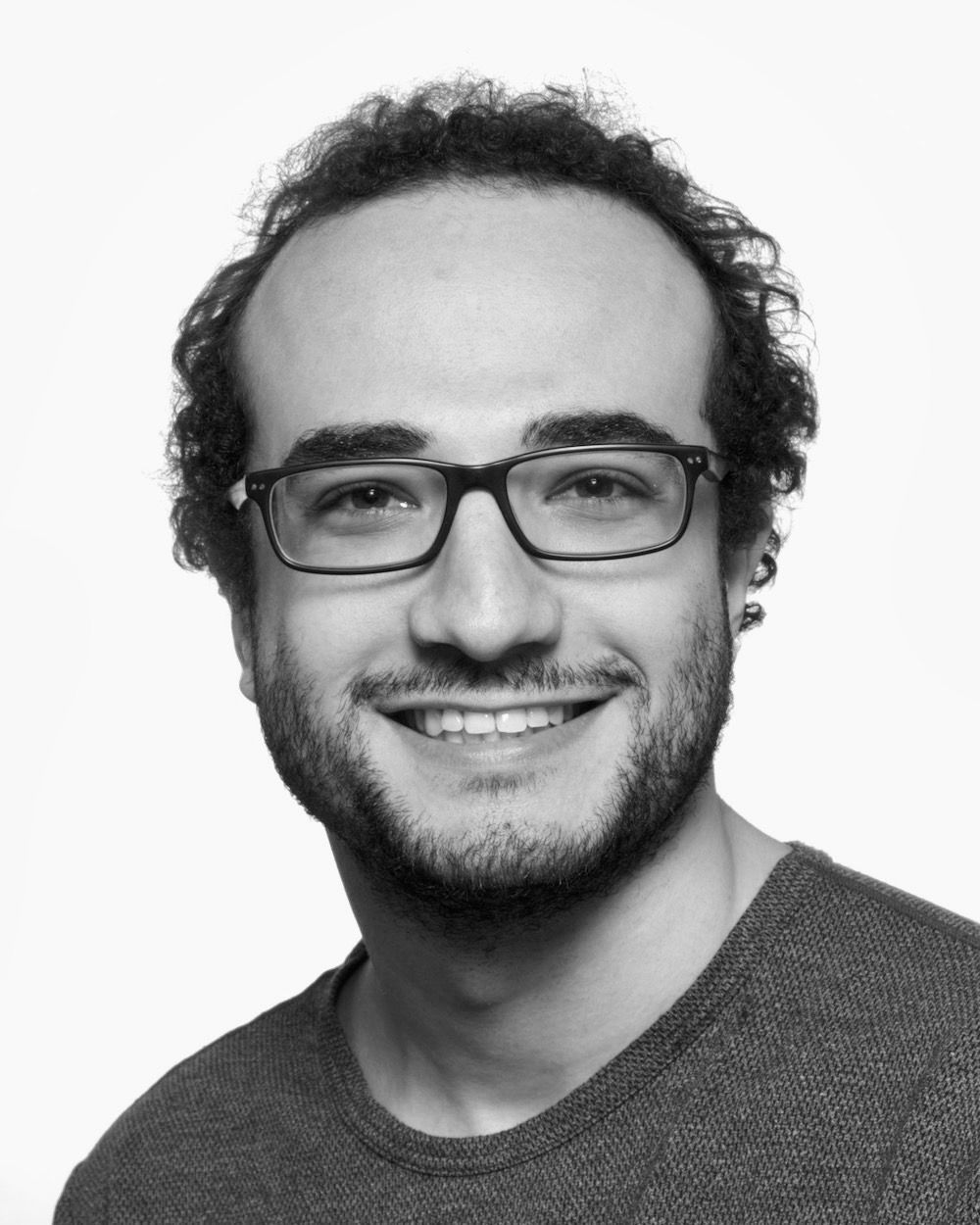This article has been republished with us by Aaron Beeson. You can find their channel, Beesativity, on YouTube and Twitter.
The earth from whence we came is inextricably connected to us. It can be incredibly therapeutic to shed ourselves of the artificial constructs that consume us daily, and to let our senses gently caress the stimuli that nature reflects back at us. Our eyes interact with the photons, our ears catch the vibrations of the air around us, and our nose detects the chemical signatures adrift within that air. We are materially situated within our environment like a fish is in water. Our minds are in constant communication with the physical world and cannot be separated from its processes, but the interpretation of the physical world by the limited functions of sensory receptors and cognitive processes can be obfuscated. If we reconnect with the natural world, it can show us how to organize, how to act, how to think, and how to communicate more effectively. We must let the framework of our minds fit snugly around the contours of the terrain. To change the world, we must first plant a seed. What I mean specifically by that is that change starts with an action that transforms material reality, but the results will not be immediately gratifying. A tree must first take root and grow before it flourishes, and the same goes for every effort put into mutual aid and direct action before it can blossom into a revolution. Every debate had is an idea planted before it can grow into a completely formed conceptual framework. To get a clearer picture of this particular conceptual framework, we can reference Lao Tzu, the anarchist movement known as Especifismo, and the work of Paulo Freire.
Water is a guiding force. It can show us how to adapt to our material conditions and how to change it. We should leave our minds open enough to a diversity of tactics, but we should also remain critical enough to distinguish between adopting tools that will help us create something beneficial, beautiful, and nourishing and adopting tools that, in and of themselves, will become counter-revolutionary. Water can take the shape of whatever vessel it is placed in. It is wise enough to move around whatever obstacle is placed in its way. However, water isn’t simply a slave to the status quo. With enough time, power, and volume, it will dissolve the obstacle. It will shape the earth around it. This wisdom is derived from Lao Tzu’s teachings in the Tao Te Ching. In it, Lao Tzu writes:
'Under heaven, nothing is more soft and yielding than water. Yet for attacking the solid and strong, nothing is better; it has no equal. The weak can overcome the strong; the supple can overcome the stiff. Under heaven everyone knows this, yet no one puts it into practice.'
There are many translations of the Tao Te Ching, but for this quote I settled for Gia Fu Feng’s translation. In other translations, they emphasize flexibility, but the general idea is still the same. Water is simultaneously a source of life as Lao Tzu writes:
'The highest good is like water. Water gives life to the ten thousand things and does not strive. It flows in places men reject and so is like Tao. In dwelling, be close to the land. In meditation, go deep in the heart. In dealing with others, be gentle and kind. In speech, be true. In ruling, be just. In daily life, be competent. In action, be aware of the time and the season.'
In the same way, we can’t force our will upon the people. We have to flow with them. Change comes from the actions of every individual among the masses percolating up from below. The movements as a whole shape the earth like a river. There is an anarchist tactic in South America known as Especifismo, and of it the Gaucho Anarchist Federation of Brazil writes:
'We feel that the level at which workers’ movements and popular bodies organize and operate should not be dictated by politico-ideological outlook, nor manipulated by schemes devised in quarters far removed from the sharp end of those struggles.'
Earlier in the article, they specify their framework by writing:
'As we see it, there is no ‘struggle for the people’ and no ‘struggle through the people’: either we fight alongside the people, as militants pursuing a class option and having some profile among the people, or else no libertarian struggle is possible. This is because nothing can take the place of organized people. Only the self-organized people can create people’s power, increasing the level and intensity of the struggle as the political awareness spreads that revolution is feasible and necessary.'
The Gaucho Anarchist Federation has an intimate understanding of how change works. It cannot be simply imposed from above. Material consciousness, or class consciousness, must take hold amongst the populations of people first. You have to patiently work directly with the people knowing that the masses themselves are the prime movers. Liberation is only possible if the people themselves are empowered and not subjugated to yet another authority promising that they know what’s best for them. In case my earlier words sounded too much like incrementalism, I would like to assure you that it was to only console those dismayed by the lack of immediacy in the results of their actions. I am very much a proponent of real radical action, but every act of radicalism, no matter how small, counts. To be sure, this dam is about to break, and we need to be a molecule of water within the current of the flood.
Another important aspect of water is that in the right form, it expands our perception and allows us to be capable of viewing the entire spectrum of visible light within the majesty of every colour in the rainbow. From this we can discern the role of conceptual frameworks in formulating perspective. Just as water reflects light in a way that makes us suddenly aware of what has always been there, a conceptual framework can either obscure or expand how one understands their material reality. As my material circumstances have changed, I’ve been thinking about how to best affect change. I’ve always been occupied with the effects of conceptual frameworks, but Paulo Freire’s work helped to situate it in a material context. Our minds are all trapped in a conceptual cage, and sometimes we need help recognizing the source of our oppression. In Paulo Freire’s book Pedagogy of the Oppressed, he writes:
'In problem-posing education, people develop their power to perceive critically the way they exist in the world with which and in which they find themselves…'
Later in the book, Freire continues,
'If this view be true, the revolutionary process is eminently educational in character. Thus the road to revolution involves openness to the people, not imperviousness to them; it involves communion with the people, not mistrust.'
From these excerpts of the book, we can already see the similarities it shares with both Lao Tzu’s wisdom and the principles of Especifismo, but with the added dimension of the conceptual and educational character of the process necessary for the liberation of the people. In a way, we are a lot like my dog Mojo. We are trapped physically in the sense that we are limited and confined by the fence around the perimeter of the physical space we occupy, but unbeknownst to us, the gate is open, yet we stay because conceptually we don’t know any better. We are trapped within the fence around the perimeter of our minds. We have to show Mojo the way out and walk with him to help clear away the obstacles that impede his liberation. Mojo might enjoy the companionship of his adopted human pack, and he might enjoy having resources provided to him in exchange for his lack of mobility, but how could he know that he wouldn’t prefer life outside if he doesn’t have the cognitive tools to conceive it? This is much like capitalist realism.
Capitalist realism is a concept put forward by the late Mark Fisher to describe how people are limited in their ability to conceive of anything beyond capitalism. In what ways is it possible for one to be limited by a framework? Imagine you are looking at a photo that is zoomed in on an object and the details are blurry. It’s impossible to know what it is when the object is obscured and you lack the necessary context. All is revealed when you zoom out. Someone might say, “I think you should work to earn a living,” to which the appropriate response would be, “For who? For a capitalist or yourself? If it’s not necessary, then why? If it is necessary, but someone is unable to participate due to a disability or some other legitimate reason for not contributing, then should they be allowed to die if we can prevent it?” Someone else might say, “I’m proud to be an American.” The appropriate response would be, “Why? What is included and excluded in the category ‘America?’ Why would it not include the corrupt US institutions and power structures that define ‘America?’ Why would it not include the foreign and economic policies that lead to the deaths of many all over the world? If it does include those aspects, then why would you be proud of them?” Here’s a question that’s important: what do you think of climate change? This world is, in fact, falling apart, and it’s falling apart explicitly because of capitalism. There are fires all over the world as of the time I’m writing this. There was a fire near my current place of residence here in San Diego that was just recently brought down to manageable levels. There are large fires sprinkled about all over the west coast, South America, and elsewhere in the world. The south east coast was pelted with devastating hurricanes. The important questions to ask here are, “If capitalism and our economy needs to exploit the earth to its detriment, accumulate resources, and waste resources to survive, but in turn our planet will be uninhabitable, what course of action does that leave us with?” Only one really if we are serious about our survival. Among the deniers, there will be several flawed assumptions. They will probably be completely unaware that they hold these assumptions as self evident. They act as the glue and the wood that hold together the conceptual framework. You will need to attack each of these assumptions.
Freire lays out a useful strategy for this type of education in his book. First, your relationship with the subject must be dialogical. Bring yourself to their level and become a critical co-investigator. In your words, you are going to want to inspire reflection and action. Through dialogue, you must dig to discover their objective situation and their awareness of it. During this process, you will find what Freire calls “generative themes.” Generative themes are the material representation of concepts, ideas, hopes, values, etcetera, of the time in which the subject exists. Themes have an interdependent relationship with limit situations, which are obstacles people must overcome. Often you will find that the limit situations conceal the themes, and the people are then unable to act on them. An example of a theme would be domination as it is for many in our current epoch. Usually the perception of the form of domination will be obfuscated, and the subject being unable to perceive this gives us our limit situation. People will often have a conception of reality that will be difficult to penetrate, and the way to do this is through coding and decoding. Coding entails creating an abstraction, or a representation of their situation, showing the elements of the whole and how they interact. Decoding is returning to the parts from the holistic view. You relate it to that person’s objective material situation. You show them why a particular element of reality is relevant to them.
Freire gives us a concrete example of what he means by telling us a story about an experience he had in the field. A group of workers in a village were talking about a fellow worker and praising his alcoholism as a virtue. Their reasoning for this was that a man is an alcoholic because he needs to be in order to ease the burden of being a hard worker, and a hard worker is virtuous because one needs to work hard to take care of one’s family. The way that you would approach this situation is to bring to mind how alcoholism relates to hard work, and how hard work relates to the form of production required of them. Why does one drink? Maybe because they are stressed. Why are they stressed? Because work is hard. What is entailed in hard work? Is all the work that one may engage with hard necessarily? Probably not. So what makes hard work stressful? Maybe it’s their relation to that work. Maybe it's their relation to the person requiring them to do that work. Maybe it’s their low wages. Maybe it’s exploitation. If you would like more detail of this process, I’d highly recommend giving Pedagogy of the Oppressed a read. It is well worth your time.
We are all complex organisms navigating a landscape of language games that form the politics of our societies that in turn inform the actions of every individual that compose the movements that shape our earth and our world. Aside from our particular form of language, we are not that different from an ant attempting to provide for its colony. If we do not take the correct course of action and if we do not reconnect with the earth’s ecosystems to forge the correct pathways to building a non-hierarchical decentralized society, we will wither and die much like a tree starved of the resources it needs to survive. Our leaves will brown and prevent us from turning the sunlight into the energy we need to sustain ourselves. If we die, life will fortunately continue for the earth. If our society falls, life will repopulate as it does when a tree falls. Thus is the cyclical form of nature. However, it still is not too late. We still have the chance to plant something that will grow into something alive and thriving in concert with its environment and with the people that comprise it. It’s not too late, and if you wish to join us, to help pitch in to building a better world, go ahead and grab yourself a brick. There are plenty to go around. You can also help by building and organizing mutual aid networks in your neighbourhood. If you have access to land, start a commune based on your principles. Start a farm on your commune and donate the food. If you are more of the political type, start building the infrastructure of communalist assemblies through which you can connect to mutual aid networks, unions, and non-capitalist cooperatives alike. Change is possible. It is up to all of us to do it.
Special thanks to our patrons, John Walker, BoringAsian, Mr Jake P Walker, Joseph Sharples, Josh Stead, Dave, Bliss, Hol, Aryeh Calvin, Rylee Lawson, Meghan Morales
If you want to help us maintain and develop our publication please consider becoming a patron:





